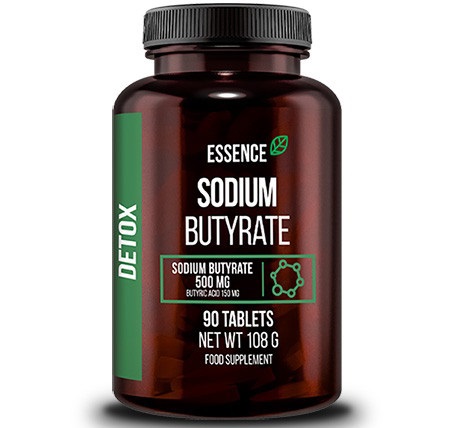Hamster Study Shows Butyrate Exhibits Antiviral Properties And Reduces Oxidative Stress To Promote Cell Survival In SARS-CoV-2 Infections
COVID-19 News - Butyrate - Antiviral Properties - Reduces Oxidative Stress -Cell Survival Jul 30, 2023 2 years, 7 months, 3 days, 3 hours, 6 minutes ago
Butyrate exhibited an effective prevention against SARS-CoV-2 by upregulating antiviral immune responses and promoting cell survival
COVID-19 News: The ongoing global battle against the severe acute respiratory syndrome coronavirus 2 (SARS-CoV-2) has seen researchers and scientists tirelessly working to develop effective therapies to combat the devastating effects of COVID-19. While various treatment strategies have been explored, there is a growing realization that prevention remains a key aspect in managing the pandemic. In this quest for innovative preventive measures, an extraordinary study conducted on golden hamsters by researchers from the Joint Institute of Virology, Shantou University Medical College, Xiamen University, and The University of Hong Kong has shed light on the potent antiviral immune properties of butyrate.
 Butyrate: A Microbial Marvel with Multifaceted Effects
Butyrate: A Microbial Marvel with Multifaceted Effects
Butyrate, a short-chain fatty acid (SCFA), has long been acknowledged for its beneficial role in gut health. Produced during the fermentation of dietary fiber by gut microbiota, butyrate acts as an essential energy source for colonocytes and a potent anti-inflammatory mediator. It achieves its effects through interactions with G protein-coupled receptors (GPRs) such as GPR41 and GPR43, as well as by inhibiting the activity of histone deacetylase (HDAC).
The Potential of Butyrate in Viral Infections
Intrigued by butyrate's remarkable influence on gut health and immune regulation, the study team sought to investigate whether this microbial marvel could also prove effective against viral infections. Their attention turned to the ongoing battle against SARS-CoV-2, which has led to millions of deaths worldwide. While current therapeutic strategies focus on treating COVID-19 patients, the study aimed to explore the potential of butyrate in preventing and treating the viral infection itself.
Hamster Model Unravels Butyrate's Protective Effects
To determine the protective effects of butyrate against SARS-CoV-2, the study team conducted experiments on golden hamsters, a well-established model for studying viral infections. They administered butyrate to the hamsters both before and during the infection and closely monitored the outcomes.
Alleviation of Tissue Injury through Augmented Immune Response
One of the hallmark features of severe COVID-19 in humans is acute respiratory distress syndrome (ARDS) as covered in past studies and
COVID-19 News reports. The study team discovered that butyrate administration resulted in the alleviation of tissue injury in SARS-CoV-2-infected golden hamsters. This effect was attributed to the augmentation of the type I interferon (IFN) response, a crucial component of the body's antiviral defense system. Butyrate effectively activated endothelial cells without triggering exaggerated inflammation, thus preventing immunopathology.
Endothelial Protection and Immune Cell Recruitment
Endothelial cells, which line
blood vessels, play a vital role in immune cell recruitment during viral infections. Butyrate, the study found, offered significant protection to endothelial cells, promoting their activation and enabling effective immune cell recruitment. This mechanism potentially prevents hyperinflammation and aids in the clearance of viral antigens from the lungs.
The Anti-Oxidative and Anti-Apoptotic Effects of Butyrate
Another key finding of the study was butyrate's role in regulating redox homeostasis and mitigating oxidative stress. Oxidative stress, characterized by an imbalance between reactive oxygen species (ROS) production and the body's antioxidant defenses, has been implicated in the pathological responses observed in COVID-19 patients. Butyrate administration enhanced the activity of superoxide dismutase (SOD), a crucial antioxidant enzyme, thereby reducing apoptotic cell death induced by SARS-CoV-2.
Conclusion: A Promising Approach for SARS-CoV-2 Prevention
The groundbreaking study on golden hamsters has revealed the potential of butyrate as a preventive measure against SARS-CoV-2 infections. By boosting antiviral immune responses and promoting cell survival through its anti-inflammatory, antioxidative, and anti-apoptotic effects, butyrate emerges as a compelling candidate for combating COVID-19.
As the world continues to grapple with the pandemic, the study's findings open new avenues for the development of innovative therapies that harness the power of gut microbiota metabolites, offering hope for a safer and healthier future.
The study findings were published on a preprint server and are currently being peer reviewed.
https://www.biorxiv.org/content/10.1101/2023.07.27.550811v1
MEDICAL DISCLAIMER: Please note that this article is based simply as research findings and not as medical advice. Butyrate has not been approved by any regulatory agency around the world to treat COVID-19. Please do not attempt to take Butyrate without consulting a licensed medical doctor first.
For the latest
COVID-19 News, keep on logging to Thailand Medical News
